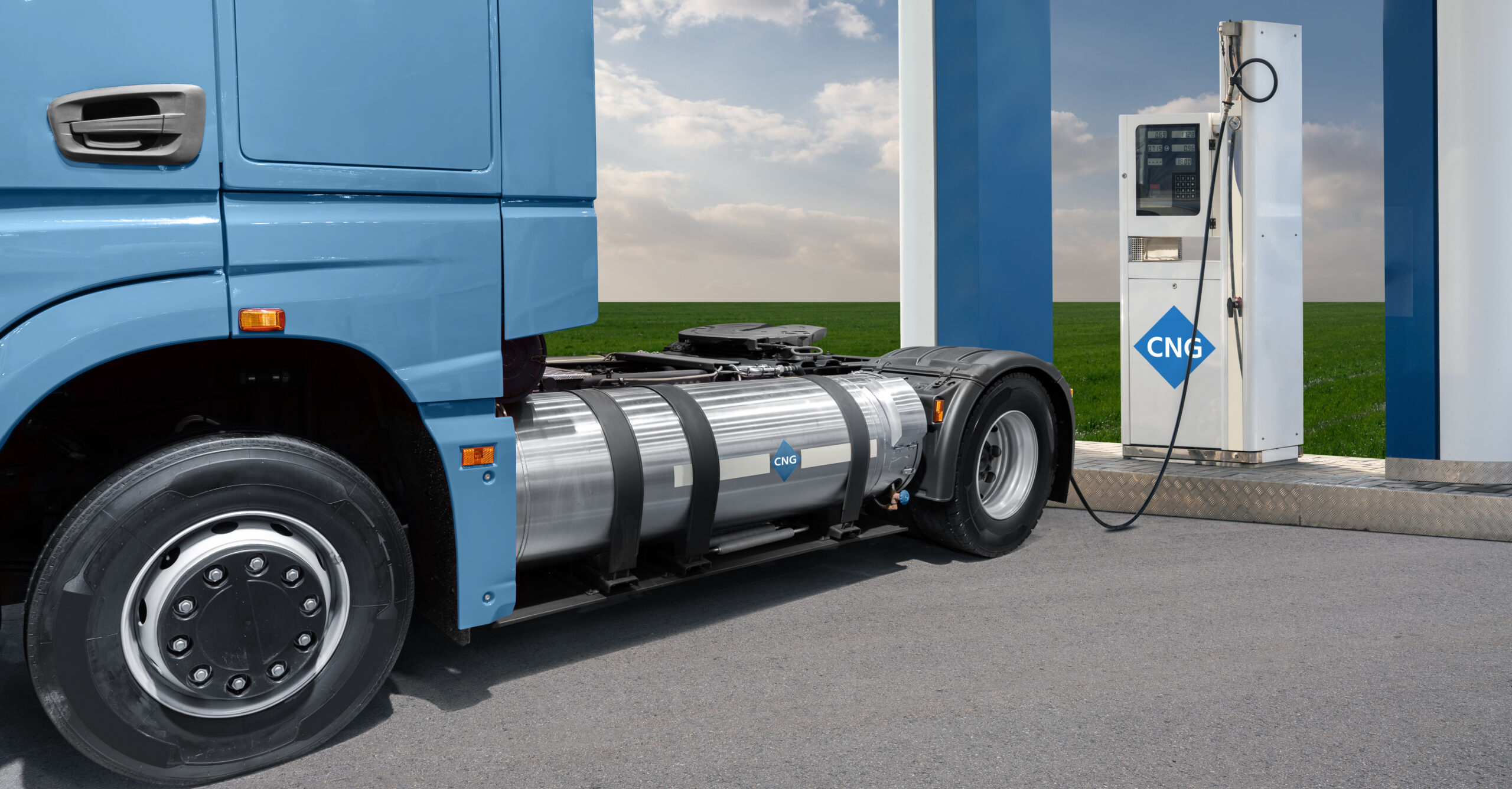
Sustainability has become an important issue in the trucking industry, with many fleet owners and their customers pledging to reduce greenhouse gas emissions in the coming years. Even as diesel fuel has become “cleaner” than ever before, diesel-powered trucks are still a top cause of harmful emissions.
In an effort to reduce their carbon footprint — and reduce fuel costs — some fleet owners are looking at alternatives to diesel, one of which is CNG.
What Is CNG?
CNG — compressed natural gas — is a processed byproduct of fossil fuels in the ground. It’s an environmentally friendly alternative to gasoline, propane, and diesel and can power trucks with CNG-compatible engines.
According to ACT Research’s Alternative Fuels Quarterly, in the first five months of 2021, sales of Class 8 natural gas trucks rose 19% in the U.S. and Canada compared to the same time period in 2020.
Advantages of CNG trucks
These are some of the advantages of CNG-powered trucks:
Reduced emissions
Greenhouse gas emissions are 20% lower for CNG trucks than diesel trucks.
Lower fuel costs
In July 2022, of eight conventional and alternative fuels, CNG had the lowest price, at $3.12 per DGE (diesel gallon equivalent). It also had the smallest April-to-July price increase.
Accurate cost forecasts
CNG is abundantly available in the U.S., so it’s not subject to the price fluctuations associated with foreign oil, or major supply chain disruptions. That means fleet managers can accurately forecast fuel costs.
Enhanced safety
CNG is non-toxic, and because it’s gas, it can’t contaminate groundwater or soil in the way liquid diesel can. In the event of a tank rupture, CNG quickly dissipates into the atmosphere.
Unlike diesel trucks, CNG trucks produce no noxious fumes — that’s a big benefit for sanitation workers and other people who work on or near Class 8 trucks.
Quieter operation
CNG engines are 10 decibels quieter than diesel engines. A U.S. Department of Energy case study reported that after the New York City Department of Sanitation began using CNG trucks, workers could listen to the radio on routes, which wasn’t possible in diesel trucks.
Incentives
The federal government offers funding and grants for municipalities and public institutions seeking to switch to CNG-powered trucks. In Indiana, the City of Portage Street and Sanitation Department replaced its garbage truck fleet with CNG trucks, thanks to the Volkswagen Environmental Mitigation Trust.
Barriers to CNG truck adoption
Despite the obvious benefits of natural gas trucks, there are some barriers to widespread usage.
Fewer fueling stations
CNG fueling stations are located mostly in densely populated areas. Depending on transit routes, some fleets may be unable to use CNG trucks.
Lack of trained technicians
CNG engines run cleaner than diesel engines, which means fleets may need fewer scheduled service appointments. But finding CNG-trained technicians and shops could be a challenge.
Shops that service CNG engines must be CNG-approved and have fire marshal certification for proper ventilation. Only certified high-pressure technicians can work on the fuel tanks, and fuel system inspectors must have CNG-specific training.
Cost
Businesses that don’t qualify for grants may find the cost of CNG trucks prohibitive. Conversion kits for heavy-duty vehicles start at $1,875 and don’t include the fuel tank. New Class 8 tractors cost about $170,000, compared to $120,000 for a diesel tractor.
Technology for Better Trucking
Whether you’re switching to CNG or sticking with diesel, there are steps you can take to lower your fuel costs, fuel usage, and emissions.
TruckWings by TruckLabs is a drag-reduction device with aerodynamic panels that close the gap between tractor and trailer when speed exceeds 52 mph. The panels deploy automatically, and retract when speed drops below 50 mph. This durable, low-maintenance solution takes less than two hours to install and works for most tractors — both diesel and CNG.
Learn more about how TruckWings can help you cut costs and lower emissions, with or without CNG trucks.



